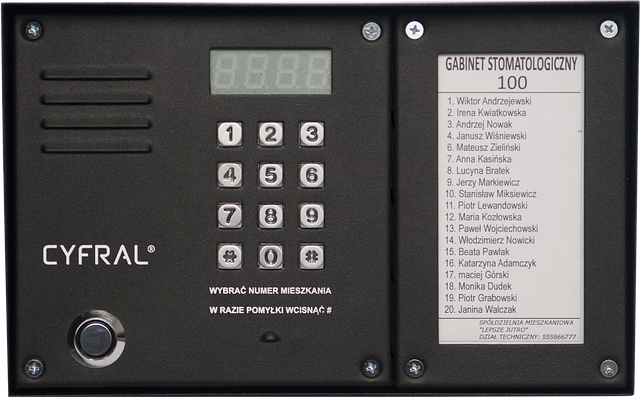Security deposits and thorough background checks, including rental and credit history verifications, are essential components of the modern rental application process. These measures protect landlords by gauging tenants' financial stability, responsible tenancy, and potential risks. Positive checks enhance tenant confidence and promote a seamless renting experience, while negative outcomes may lead to rejections. Understanding these processes is crucial for both landlords to find reliable tenants and renters to secure desired accommodations, fostering trust within the housing market.
In the intricate dance of leasing, security deposit requirements play a pivotal role, serving as guardrails in the rental application process. This article delves into the multifaceted aspects of these mandates, exploring their purpose, impact, and underlying benefits. From protecting landlords to fostering responsible tenancy, background checks, rental history verifications, and credit assessments are key components. Understanding these factors is essential for both property managers and prospective tenants navigating today’s competitive rental market, shaping a crucial element of the tenant screening process.
- The Purpose of Security Deposits: Protecting Landlords and Promoting Responsibility
- Background Checks Rental Applications: Uncovering Potential Red Flags
- Impact of Checks on Renting: How They Shape a Tenant's Experience
- Understanding Rental History Checks: Peering into Past Tenancies
- Credit Checks in Renting: Evaluating Financial Responsibility
- The Role of Tenant Background Checks: Ensuring Safe and Reliable Occupancy
The Purpose of Security Deposits: Protecting Landlords and Promoting Responsibility

Security deposits play a pivotal role in the rental application process, serving as a crucial safety net for landlords and promoting responsible tenancy. When prospective tenants submit applications, landlords often require security deposits to safeguard their properties from potential damage or unpaid rent. These deposits act as a form of insurance, providing landlords with financial assurance should any issues arise during the tenancy period.
The practice of demanding security deposits is particularly significant in the context of background checks rental applications and credit checks renting. By assessing a tenant’s background, rental history checks, and creditworthiness, landlords gain valuable insights into their potential as responsible tenants. This process helps protect against risky rentals, ensuring that properties are maintained and rent is paid on time. The impact of these checks on renting is profound, fostering a culture of accountability among prospective tenants.
Background Checks Rental Applications: Uncovering Potential Red Flags

Background checks play a pivotal role in the rental application process, providing landlords with valuable insights into a prospective tenant’s past. These checks go beyond simply verifying employment and income, delving into crucial aspects such as rental history, creditworthiness, and potential red flags. By examining previous landlord references and conducting comprehensive credit checks, landlords can uncover hidden risks and make informed decisions about who they rent to.
The impact of background checks on the renting process is significant. They help identify reliable tenants with a strong track record of timely rent payments and responsible property care. Conversely, red flags revealed through these checks may include outstanding debts, evictions, or criminal records, prompting landlords to assess the suitability of each applicant. Understanding the importance of tenant background checks, including rental history verifications and credit assessments, is essential for navigating the complexities of finding and retaining quality tenants.
Impact of Checks on Renting: How They Shape a Tenant's Experience

Background checks and rental applications are integral parts of the modern renting landscape. These processes, including credit checks and tenant background checks, have a profound impact on a potential tenant’s experience. When landlords or property managers demand these checks as part of the rental application process, it sets the tone for how applicants perceive the entire procedure.
A thorough assessment of an applicant’s rental history, financial standing, and personal background can either boost their confidence or instill anxiety. Positive results from these checks often showcase a tenant’s reliability, responsible behavior, and ability to meet financial obligations. Conversely, discrepancies or red flags might lead to rejections, impacting applicants’ self-esteem and their willingness to apply for future rentals. Therefore, it’s crucial for both landlords and tenants to understand the importance of these checks in shaping rental experiences, fostering trust, and ensuring mutually beneficial relationships within the housing market.
Understanding Rental History Checks: Peering into Past Tenancies

Understanding Rental History Checks: Peering into Past Tenancies
When it comes to the rental application process, background checks play a pivotal role in assessing potential tenants. One key component within this process are rental history checks, which allow landlords and property managers to gain valuable insights into a candidate’s past tenancies. These checks help determine the impact of checks on renting by revealing patterns of responsible or irresponsible leasing behavior.
By examining rental applications and credit checks, tenant background checks offer a comprehensive view of an individual’s financial reliability and commitment to previous rentals. Positive rental history indicates timely rent payments, proper property maintenance, and good communication—all factors that contribute to a smooth and successful renting experience. Conversely, negative or missing rental records can raise concerns about an applicant’s trustworthiness, potentially influencing their eligibility for a new lease.
Credit Checks in Renting: Evaluating Financial Responsibility

In the context of renting, background checks and tenant background checks play a pivotal role in evaluating potential tenants’ financial responsibility. When prospective renters submit rental applications, landlords often conduct credit checks renting and rental history checks as part of the application process. These checks provide valuable insights into a tenant’s past rental behavior, creditworthiness, and overall financial stability.
The impact of these checks on the renting process is significant. Positive tenant background checks can highlight reliable rental history, responsible payment behavior, and minimal risk to landlords. Conversely, negative results may indicate previous defaults, delinquencies, or poor credit scores, signaling potential challenges in securing timely rent payments and maintaining property integrity. Understanding the importance of these checks helps tenants prepare their applications, ensuring a smoother journey towards securing their desired rentals.
The Role of Tenant Background Checks: Ensuring Safe and Reliable Occupancy

Tenant background checks play a pivotal role in the rental application process, serving as a critical safety net for landlords and property managers. These thorough assessments go beyond simply reviewing a prospective tenant’s credit history; they scrutinize various aspects of an individual’s past to predict future behavior. By examining rental history, employment records, and even criminal records (where permitted), landlords gain valuable insights into a tenant’s reliability and responsible conduct.
The impact of these background checks on the renting process is significant. They help identify potential risks, ensuring that properties are occupied by safe and reliable tenants. For landlords, this means minimizing the chances of vacant units due to tenant turnover or damage, both of which can be costly. Effective tenant background checks contribute to a seamless rental experience for everyone involved, fostering trust and promoting harmonious cohabitation.






